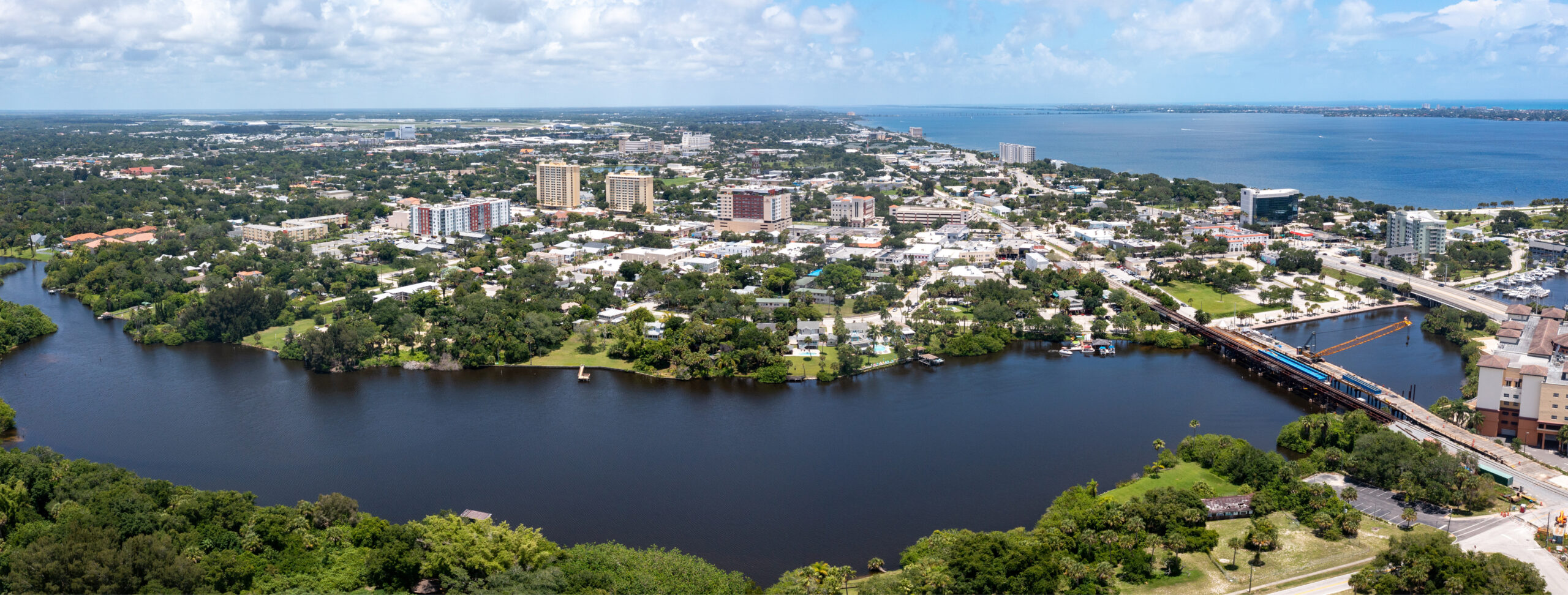Florida, known for its sunny beaches and vibrant cities, draws millions of visitors each year. While most enjoy their time without incident, some find themselves in legal trouble. Arrests of visitors are not uncommon, and the process can be confusing, especially for those unfamiliar with Florida law. Understanding the legal system and the rights of those arrested can make a significant difference in how the situation is handled.
Melbourne Lawyer for Visitor Arrests
If you or your loved one have been charged while visiting Florida, you need to contact an experienced defense attorney immediately. Contact Germain Legal by calling (321) 775-3559 or submit an online form today to start building your defense.
Our office is located in Melbourne, Florida, and we proudly serve the surrounding communities of Palm Bay, Titusville, Rockledge, Merritt Island, Cocoa, and Satellite Beach in Brevard County; Vero Beach and Sebastian in Indian River County; Deltona and Daytona Beach in Volusia County; and Kissimmee and Poinciana in Osceola County.
- Common Reasons for Arrests of Visitors in Florida
- Specific Types of Visitor Arrests
- The Arrest Process in Florida
- Legal Rights of Arrested Visitors
- Court Appearances
- Consequences of Ignoring a Court Date
- How a Criminal Defense Attorney Can Help You
- Alternative Resolutions for Visitors
- Additional Resources
- Hire a Lawyer for Visitor Arrests in Brevard County FL
Common Reasons for Arrests of Visitors in Florida
There are several reasons why visitors might be arrested in Florida. Traffic violations, such as driving under the influence (DUI) or speeding, are common causes. Florida has strict DUI laws with severe penalties that can include fines, jail time, and the suspension of driving privileges. Even minor infractions like speeding can escalate if not handled properly, leading to arrest.
Another frequent reason for visitor arrests is drug possession. Florida’s drug laws are tough, and even small amounts of illegal substances can lead to serious charges. Visitors may also be arrested for public intoxication, disorderly conduct, or theft, especially in tourist-heavy areas where law enforcement is vigilant.
Lastly, domestic disputes or altercations that occur during a vacation can also lead to arrests. These situations are often emotionally charged, and law enforcement may intervene quickly, resulting in one or more parties being arrested.
Specific Types of Visitor Arrests
Spring Break Arrests – Brevard County, FL
Spring break arrests in Brevard County, FL, frequently occur in busy areas such as beaches, bars, and popular tourist spots. Common charges include underage drinking, drug possession, disorderly conduct, public intoxication, and theft. These offenses are typically classified as misdemeanors, but some, particularly drug-related charges, can rise to the level of felonies depending on the specifics. During spring break, local law enforcement often increases patrols to manage the large influx of visitors, leading to a higher number of arrests.
Airport Arrests
Airport arrests typically occur when someone is taken into custody at an airport for breaking the law. Popular airports where these arrests occur include Orlando International Airport (MCO), Melbourne Orlando International Airport (MLB), and Orlando Sanford International Airport (SFB). These incidents can involve various offenses, such as carrying illegal drugs, carrying prohibited firearms, disorderly conduct, fraudulent documentation, or making threats. Law enforcement officers have the authority to arrest individuals without a warrant if they have reason to believe the person has broken the law, whether state or federal. Most offenses are prosecuted under state law. However, most crimes involving fraudulent documents, aviation security, and threats of terrorism fall under federal jurisdiction. The Transportation Security Administration (TSA) and federal agencies often handle these cases, which are prosecuted in federal courts.
Tourist Arrests in Florida
Tourists arrested for offenses such as DUI, drug charges, or domestic violence may mistakenly believe they can leave the state and ignore their legal obligations. However, criminal charges in Florida can follow them back home, and even international visitors might not be allowed to leave the U.S. until their cases are resolved.
Popular Locations/Attractions
- Kennedy Space Center Visitor Complex
- Cocoa Beach
- Port Canaveral
- Canaveral National Seashore
- Merritt Island National Wildlife Refuge
- Sebastian Inlet State Park
- Brevard Zoo
- Vero Beach
- Jetty Park (Cape Canaveral)
- Historic Cocoa Village
- Indian River Lagoon
- Manatee Sanctuary Park
- Archie Carr National Wildlife Refuge
- Lori Wilson Park
- Sebastian Fishing Museum
- Melbourne Beach
- Exploration Tower (Port Canaveral)
- Paradise Beach & Park (Melbourne)
- McLarty Treasure Museum
- Turkey Creek Sanctuary (Palm Bay)
The Arrest Process in Florida
When a visitor is arrested in Florida, the process begins with the arrest itself, usually by a police officer who observes or is called to the scene of an incident. The individual will be taken into custody and transported to a local jail, where they will be booked. This involves recording personal information, fingerprinting, and taking a photograph.
After booking, the visitor will either be held until a bail hearing or released if bail is set at the station. If bail is granted, the visitor can pay the amount or hire a bail bondsman to secure their release.
If the visitor is unable to post bail, they will remain in custody until their court appearance. In some cases, a visitor may be released on their own recognizance, meaning they are trusted to return for their court date without having to pay bail. However, this is less common for visitors, as they are seen as more of a flight risk than local residents.
Legal Rights of Arrested Visitors
Visitors arrested in Florida have the same legal rights as residents. These include the right to remain silent, the right to an attorney, and the right to a fair trial. It is important for visitors to understand these rights to avoid self-incrimination or other issues that could complicate their case.
The right to remain silent is crucial. Anything said to law enforcement can be used in court, so it is often best to wait until speaking with a lawyer before answering questions. Additionally, visitors have the right to request an attorney. If they cannot afford one, the state will provide a public defender.
Visitors also have the right to contact their consulate if they are foreign nationals. The consulate can assist with legal matters and help ensure that the visitor’s rights are respected while in custody.
Court Appearances
Once a visitor is released from custody, they will have to go to court. The first step is usually an arraignment, where the charges are formally read, and the visitor can enter a plea of guilty, not guilty, or no contest. If the visitor pleads not guilty, the case will proceed to a pre-trial conference.
During the pre-trial conference, both the defense and prosecution can present evidence and discuss possible plea deals. Many cases are resolved at this stage without going to trial. However, if no agreement is reached, the case will proceed to trial.
For visitors, attending court dates can be challenging, especially if they have returned home after their arrest. It is essential to stay in communication with their lawyer and follow any instructions given by the court. Missing a court date can result in additional charges, including a warrant for their arrest. In some cases, a defendant may be allowed to enter a plea without physically being present in the state of Florida. A lawyer can represent the individual in court, negotiate a plea deal, and enter it on their behalf. This can help the defendant avoid the inconvenience and cost of returning to Florida while still resolving the legal issue. Plea in absentia is especially useful for visitors who live in other states or countries.
If the case goes to trial, the visitor has the right to a jury of their peers and the right to present evidence in their defense. The trial process involves selecting a jury, opening statements, presenting evidence, cross-examinations, and closing arguments. After both sides have presented their cases, the jury will deliberate and return a verdict.
If convicted, the visitor may face penalties such as fines, probation, community service, or jail time. In some cases, visitors may be deported if they are foreign nationals, especially if the crime is considered serious under immigration law.
Appeals are possible, but they must be filed within a certain time frame, and the visitor must have grounds for an appeal, such as a legal error during the trial. An appeal can result in a new trial, a reduction in sentence, or even a dismissal of the charges.
Consequences of Ignoring a Court Date
If a defendant fails to appear in court as required, a bench warrant will be issued for their arrest. This warrant can lead to an arrest in their home state if the individual is stopped for any reason, such as during a routine traffic stop. Florida may also seek to extradite the defendant back to the state to face charges. Ignoring a court date does not make the charges go away; it only complicates the situation and increases the likelihood of severe penalties or prolonged legal issues
How a Criminal Defense Attorney Can Help You
Immediate Legal Guidance and Representation
Once you’re arrested, it’s easy to make mistakes, especially if you’re unfamiliar with Florida’s legal system. A criminal defense attorney ensures you understand your rights, like the right to remain silent and the right to an attorney. They’ll also prevent you from self-incrimination and represent you during all stages of your case, ensuring your side of the story is heard.
Bail Assistance and Release Negotiations
If you’re held on bail, an attorney can work to get your bail amount reduced or help negotiate your release under more favorable terms. In some cases, they may be able to secure your release without any bail, allowing you to return home while the case is pending.
Handling Court Proceedings in Your Absence
If you’ve returned home after your arrest, appearing in court for every hearing can be a major burden. A defense attorney can handle much of the legal process on your behalf. They can enter a plea for you without your physical presence through a process called plea in absentia, saving you time, travel expenses, and inconvenience.
Exploring Alternatives to Conviction
If it’s your first offense or a minor charge, an attorney may be able to help you avoid conviction altogether. They can explore alternative options like pretrial diversion programs or deferred prosecution agreements.
Protecting Your Rights
Your attorney will ensure that your legal rights are protected throughout the case. They’ll challenge any improper evidence or illegal searches and make sure you’re treated fairly, reducing the risk of harsher penalties.
Alternative Resolutions for Visitors
Adjudication Withheld
If the court withholds adjudication of guilt, it means that while penalties may still be imposed, the defendant is not formally convicted of the crime. This option is often available to first-time offenders and can help avoid having a permanent criminal record, provided the individual complies with certain conditions, such as completing community service or probation.
Deferred Prosecution Agreement
A deferred prosecution agreement allows a defendant to avoid criminal conviction by agreeing to fulfill specific requirements set by the court. These conditions may include paying restitution, completing community service, attending counseling, or adhering to other rehabilitation programs. If the defendant meets these requirements, the charges may be dismissed, helping them avoid a conviction on their record.
First-Time Offender Programs
Visitors who are first-time, non-violent offenders may qualify for special pretrial diversion programs. These programs offer the opportunity to have charges dropped after successfully completing certain conditions, such as drug tests or counseling sessions. Participation in such programs is typically offered in cases involving minor offenses and is aimed at helping the defendant avoid long-term legal consequences.
Additional Resources
Rule 3.121 – Arrest Warrant – This rule outlines the requirements and procedures for issuing an arrest warrant in Florida. It specifies that the warrant must be in writing, state the nature of the offense, and be signed by a judge. The rule also allows for electronic signatures and covers the conditions under which a warrant can be amended. The goal is to help ensure that arrest warrants are issued and executed properly and fairly.
Florida Statutes Section 901.151 – Stop and Frisk Law – This law is commonly known as the “Florida Stop and Frisk Law.” It allows law enforcement officers to temporarily detain individuals when there is reasonable suspicion of criminal activity. The law also permits a limited search for weapons if the officer believes the individual is armed and poses a threat.
Hire a Lawyer for Visitor Arrests in Brevard County FL
Our office is located in Melbourne, Florida, and we proudly serve the surrounding communities of Palm Bay, Titusville, Rockledge, Merritt Island, Cocoa, and Satellite Beach in Brevard County; Vero Beach and Sebastian in Indian River County; Deltona and Daytona Beach in Volusia County; and Kissimmee and Poinciana in Osceola County.
Contact Germain Legal by calling (321) 775-3559 or submit an online form today to start building your defense.



